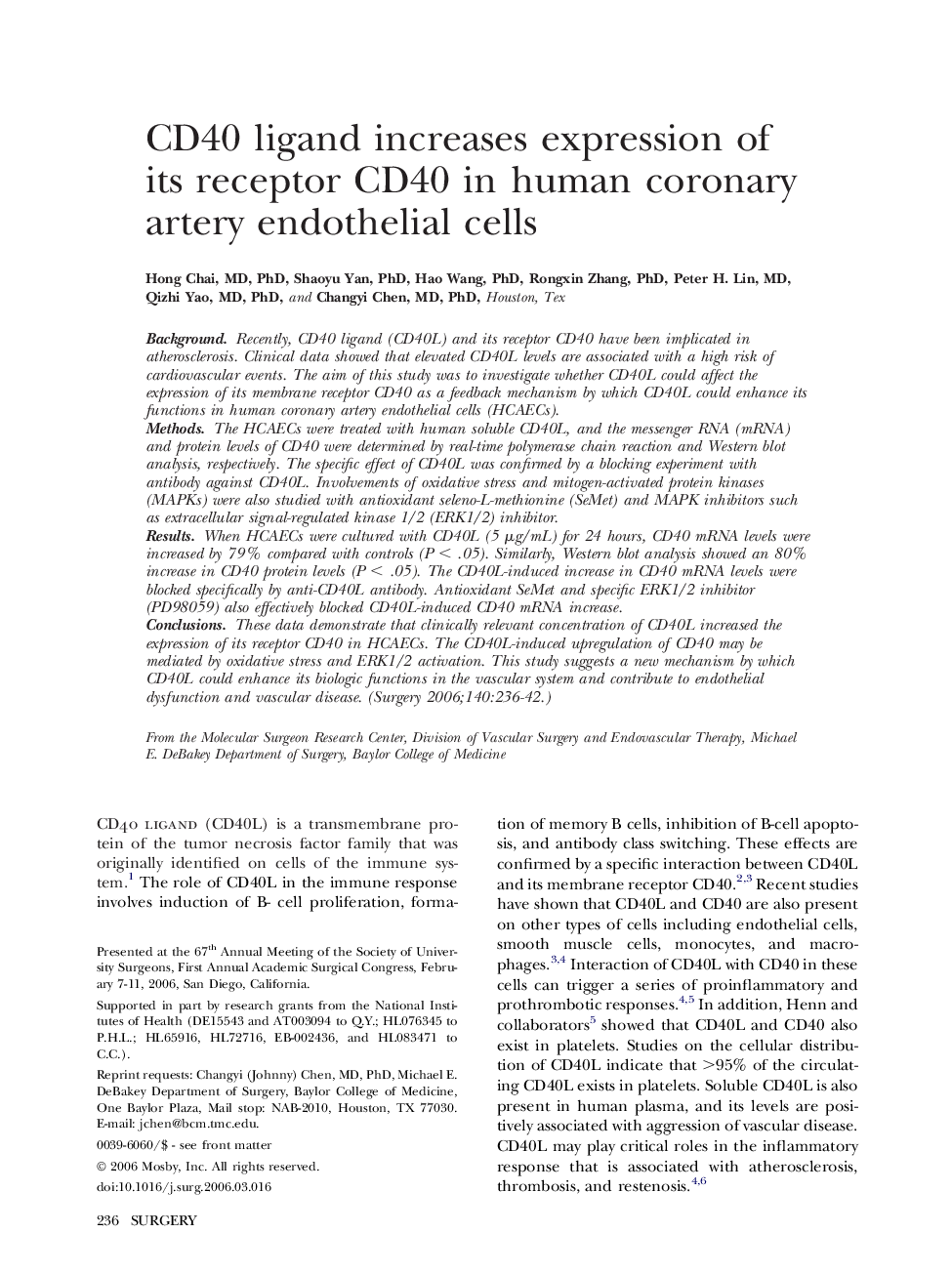| Article ID | Journal | Published Year | Pages | File Type |
|---|---|---|---|---|
| 4310008 | Surgery | 2006 | 7 Pages |
BackgroundRecently, CD40 ligand (CD40L) and its receptor CD40 have been implicated in atherosclerosis. Clinical data showed that elevated CD40L levels are associated with a high risk of cardiovascular events. The aim of this study was to investigate whether CD40L could affect the expression of its membrane receptor CD40 as a feedback mechanism by which CD40L could enhance its functions in human coronary artery endothelial cells (HCAECs).MethodsThe HCAECs were treated with human soluble CD40L, and the messenger RNA (mRNA) and protein levels of CD40 were determined by real-time polymerase chain reaction and Western blot analysis, respectively. The specific effect of CD40L was confirmed by a blocking experiment with antibody against CD40L. Involvements of oxidative stress and mitogen-activated protein kinases (MAPKs) were also studied with antioxidant seleno-L-methionine (SeMet) and MAPK inhibitors such as extracellular signal-regulated kinase 1/2 (ERK1/2) inhibitor.ResultsWhen HCAECs were cultured with CD40L (5 μg/mL) for 24 hours, CD40 mRNA levels were increased by 79% compared with controls (P < .05). Similarly, Western blot analysis showed an 80% increase in CD40 protein levels (P < .05). The CD40L-induced increase in CD40 mRNA levels were blocked specifically by anti-CD40L antibody. Antioxidant SeMet and specific ERK1/2 inhibitor (PD98059) also effectively blocked CD40L-induced CD40 mRNA increase.ConclusionsThese data demonstrate that clinically relevant concentration of CD40L increased the expression of its receptor CD40 in HCAECs. The CD40L-induced upregulation of CD40 may be mediated by oxidative stress and ERK1/2 activation. This study suggests a new mechanism by which CD40L could enhance its biologic functions in the vascular system and contribute to endothelial dysfunction and vascular disease.
